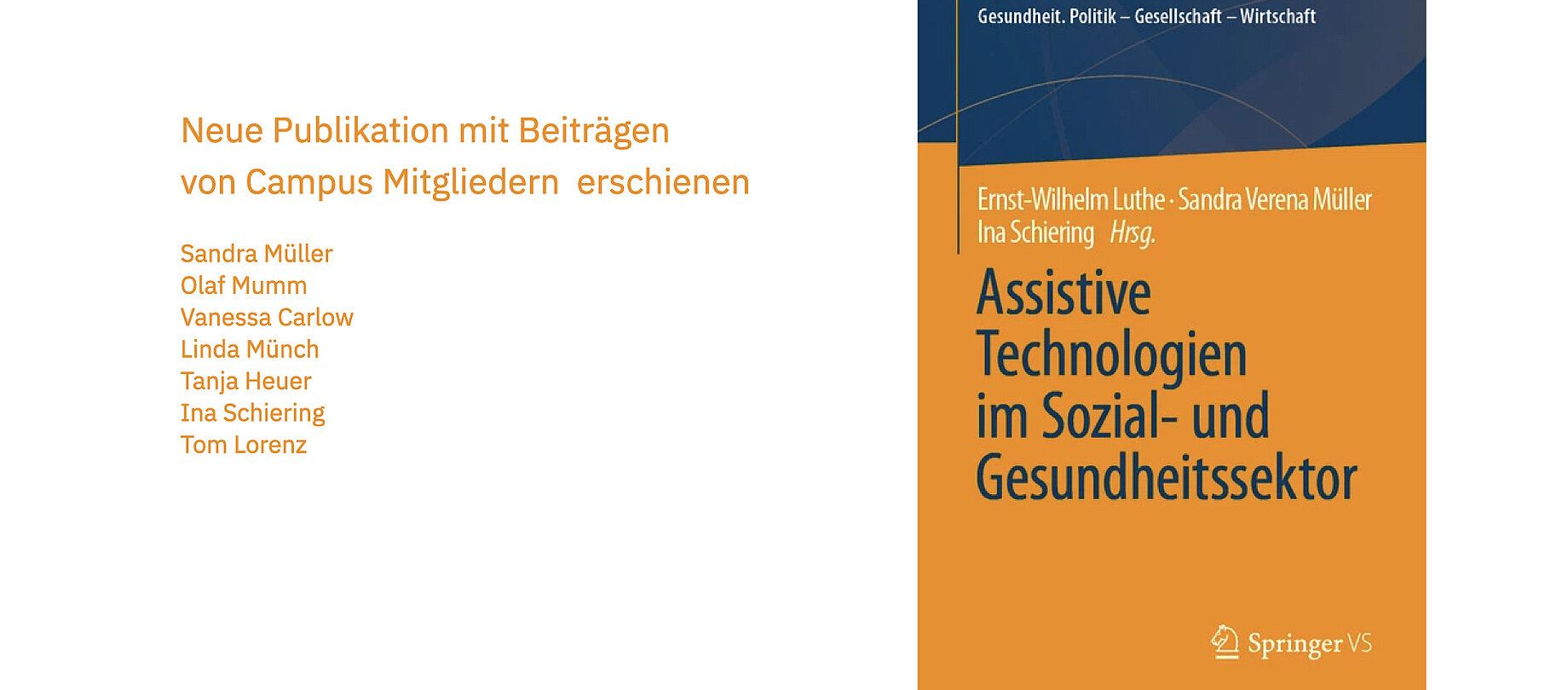
Assistive Technologies in Social and Health Sectors
The book 'Assistive Technologien im Sozial- und Gesundheitssektor' (Assistive technologies in social and health sectors) was published by Springer Verlag on 09 February 2022.
Editors: Ernst-Wilhelm Luthe, Sandra Verena Müller, Ina Schiering.
Members of the WissenschaftsCampus contributed to a number of chapters in the book (Sandra Müller, Olaf Mumm, Vanessa Carlow, Linda Münch, Tanja Heuer, Tom Lorenz and Ina Schiering). Team page: postdigitalparticipation.org/team
The corresponding chapters can be found here: postdigitalparticipation.org/publikationen
Assistive technologies (AT) combine concepts, products and services with the aim of increasing the quality of life, self-determination and participation of people in all stages of life, but especially people with impairments, older people and people with chronic diseases. Such technologies are not inevitably connected with the digital world, but closer inspection reveals that assistive technologies today do often involve digital applications whose inherent supportive effect is achieved through a combination of analogue and digital solutions. Due to the widespread availability of inexpensive and powerful digital end devices, such as smartphones, wearables, smartglasses and the first commercially successful household robots, comprehensive functionalities are available to be implemented in people's everyday lives, especially in smart homes and smart cities. A wide range of technologies are being used, such as artificial intelligence (AI), augmented reality (AR) and virtual reality (VR). Important questions to consider are how AT can be designed in a participatory manner that involves the end users and how the fundamental rights and freedoms of those affected can be preserved.
Click here to access the publication: link.springer.com/book/10.1007/978-3-658-34027-8








